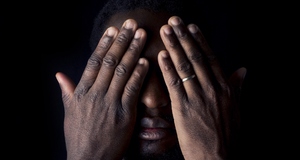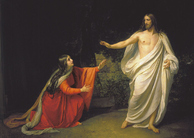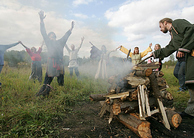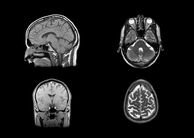Opinion:Restoring the Social Justice Identity of the Black Church
By
2010, Vol. 2 No. 02 | pg. 1/1
KEYWORDS:
“Come unto me, all ye that labor and are heavy-laden, and I will give you rest” (Matthew 11:28). In the days of past, the clarion call and mission of the black church was two-fold: it served as a beacon of hope for the lost-soul seeking grace and mercy, but it also functioned as an oasis for all issues affecting the community. The black church served as a voice in the wilderness, crying out that equality and justice belonged to all persons, despite race, social status, or lived experience. The church operated as a twenty-four hour, full-service institution, affecting change spiritually, intellectually, emotionally, and socially. What can the black church do to restore its identity as a city of refuge and a beacon of hope? People from all walks of life recognized that when resources were exhausted, the black church was a place where needs were met and issues addressed. The black minister preached a transformative message of salvation, but also served as a community representative and social activist, preaching a message of social change, equality, and unconditional love. While black ministers were not as formally educated in the pre-civil rights era, the message of the Declaration of Independence presented a complex challenge for the black church, reading, “We hold these truths to be self-evident, that all men are created equal, that they are endowed by their Creator with certain unalienable rights, that among these are Life, Liberty and the pursuit of Happiness.”It is the word, liberty, which describes the essence of the black church and its role in the politics of equality. Considering the liberty of the children of Israel, and the liberty of African slaves, liberty has been the crux of the black church. Consider the words of a familiar black spiritual: “And before I’ll be a slave, I’ll be buried in my grave, and go home to my Lord and be free.” Now, in our contemporary society that the black church has become so focused on preaching messages regarding the attainment of economic success and personal prosperity, has it begun to lose sight of its foundational calling, rooted in a message of salvation, with the promotion of life, liberty and the pursuit of happiness? The calling of the black church, using the honored text of the Christian tradition is best summarized by Jesus’ reading of the prophecy of Isaiah, “…to bring Good News to the poor. He has sent me to proclaim that captives will be released, that the blind will see, that the oppressed will be set free...” (Luke 4:18-19). The black church in the days of the civil-rights agenda fulfilled this prophetic mandate in the words of Malcolm X [how fascinating, the use of a minister of Islam in an exposition of the black church] “by any means necessary.” The black minister proclaimed a message of hope and change that all persons—regardless of race, ethnicity, sexual orientation, gender identity, socioeconomic status, educational level, or family background—could find solace,; and the people of the church served the direct human needs of the public, from meals to medicine and from housing to hope. The black church once connected to the ills of society, and developed a sense of responsibility in fighting those troubles. Whether it required a Sunday morning message or civil disobedience, the black church accepted its role in genuine social change and community transformation. Reverend Dr. Martin Luther King, Jr., an eminent prophetic voice in the reform of American society once wrote in his 1963 letter from a Birmingham jail, “In the midst of blatant injustices inflicted upon the Negro, I have watched white churches stand on the sideline and merely mouth pious irrelevancies.” Yet, in this post-modern culture, it is no longer exclusively white churches on the sideline of truth and justice, allowing the struggles of underrepresented and oppressed groups to perpetuate, but it is also the churches filled with those underrepresented groups allowing the perpetuation of injustice and inequality. The message of the cross as the changing force of all aspects in life has become silenced by the message of the dollar. The black church, a place where people came to receive whole life empowerment, has now become a wealth workshop and capital-industry. Accepting that financial opulence is a component, and some would contend a derivative of the gospel message, it should not serve as the nucleus of the message. Furthermore, accepting that the educational, economic, and ethnic facade of our culture is changing, the essence of social problems remains the same—inequality and non-access for oppressed populations. Thus, it is the responsibility of the black church to not compromise the message of the gospel with a message of capitalism, that is, it must not become so focused on individualized gain that the essential message of the cross—grace, mercy, and liberty—becomes lost. The black church must restore its position as a full-service utility that links the work of God with the work of the community. Therefore, the question becomes, what can the black church do to restore its identity as a city of refuge and a beacon of hope? Above all else, the black church must return to its first love, the social, compassionate, and liberating gospel of Jesus the Christ. The black church must stand on the teachings of Jesus despite the pressure and magnetism of contemporary societal fads to mitigate the work of the cross for the influx of capital expansion. The black church must focus on living the commission of compassion, while also continuing to preach a message of freedom, justice, equality, and hope for all persons from all walks of life. It cannot become so entangled with a message of riches that it overlooks the crucial issues of daily life— deteriorating education, unaffordable housing, rising unemployment, marginal healthcare, and several others. Ernest Hemingway, an American writer and scholar, once penned, “Never mistake motion for action.” In the same essence, the black church must never mistake the Sunday morning motions as the spiritual, intellectual, emotional, physical, and social actions that must be taken Monday through Saturday for the full-service of all mankind. The act of preaching motivates the soul and the melodies of song enlivens the emotion, yet motivation and enlivening are not enough for debt to be eliminated, graduation rates to rise, and affordable housing and healthcare to be attained—all parts of the social crisis. As part of the black church—parishioner and clergy—this is the moment to reclaim identity; and when the black church returns to its mission and restores its identity in this society, only then will it be able to serve as a collective utility of social transformation and positive change for “such a time as this” (Esther 4:14). Suggested Reading from Inquiries Journal
Inquiries Journal provides undergraduate and graduate students around the world a platform for the wide dissemination of academic work over a range of core disciplines. Representing the work of students from hundreds of institutions around the globe, Inquiries Journal's large database of academic articles is completely free. Learn more | Blog | Submit Latest in Theology |

















